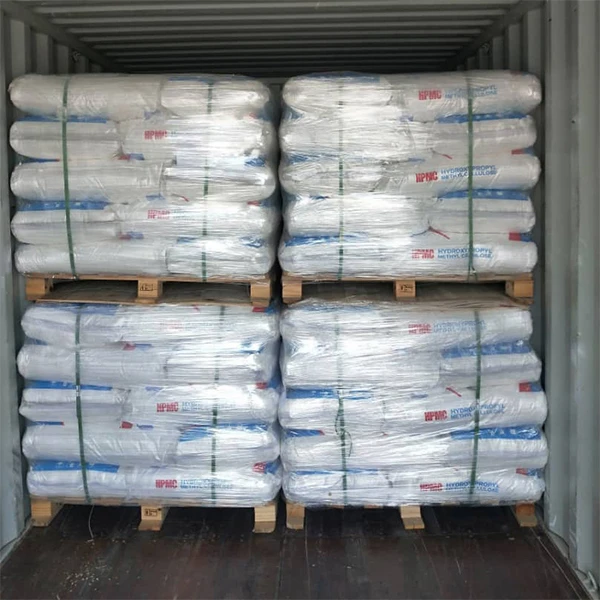Cellulose Thickener An Essential Ingredient in Modern Formulations
In the world of food, cosmetics, pharmaceuticals, and various industrial applications, the importance of thickening agents cannot be understated. One of the most widely used thickening agents is cellulose thickener, a plant-derived product that has transformed both the texture and stability of numerous formulations. This article will explore the role of cellulose thickener, its applications, and its advantages.
Cellulose, a natural polymer derived from the cellulose of plants, is fundamental to many products we use daily. The cellulose thickener is produced through the careful processing and modification of this plant fiber, enabling it to exhibit thickening and stabilizing properties. Unlike other thickeners, cellulose thickener is renowned for being non-toxic, biodegradable, and safe for consumption, making it an attractive option for a variety of industries.
In the food industry, cellulose thickeners offer a solution to achieve desired viscosity and texture without altering the flavor, a critical requirement for food manufacturers. They are commonly found in salad dressings, sauces, ice creams, and baked goods, functioning as stabilizers that prevent separation and improve mouthfeel. For instance, in low-fat or reduced-calorie products, cellulose thickeners help provide the desired creaminess and thickness that consumers expect without the need for excessive amounts of fat or sugar.
Apart from food, cellulose thickener plays a crucial role in the cosmetics and personal care sector. It is used in lotions, creams, shampoos, and gels to improve their consistency and performance. When added to these formulations, cellulose thickener enhances the product's spreadability and adherence to the skin or hair, resulting in a more luxurious experience for the user. Additionally, it acts as a suspending agent, helping to keep solid particles evenly dispersed within liquid formulations, such as in shampoos or sunscreen products.
cellulose thickener

Pharmaceutical applications of cellulose thickener are equally significant. It is often utilized as a binding agent and thickening agent in ointments, gels, and liquid medications to ensure proper consistency and dosage accuracy. Its ability to retain moisture is particularly beneficial in formulations designed to be gentle on the skin or mucous membranes. The inert nature of cellulose ensures that it does not interfere with the therapeutic effects of active ingredients, making it an ideal choice for pharmaceutical manufacturers.
Moreover, the environmental impact of cellulose thickener is minimal, as it is derived from renewable plant sources. In an era where sustainability is at the forefront of consumer consciousness, using plant-based thickeners represents a move towards more eco-friendly practices in formulation development. Unlike synthetic polymers, which can contribute to pollution and waste, cellulose thickeners offer a natural alternative that biodegrades and poses less harm to the environment.
The versatility of cellulose thickener also extends to industrial applications, particularly in paints, coatings, and adhesives. In these sectors, cellulose thickener helps control viscosity and flow properties, ensuring smooth application and improved performance. This adaptability makes cellulose thickener a vital component for manufacturers aiming to enhance the quality and performance of their products.
In conclusion, cellulose thickener is an indispensable ingredient across numerous industries, from food and cosmetics to pharmaceuticals and industrial applications. Its ability to provide stability, improve texture, and enhance sensory experiences sets it apart from other thickening agents. As the demand for natural and sustainable products continues to rise, cellulose thickener stands out as a safe, effective, and environmentally friendly alternative. Its multifunctional applications and benefits not only meet the needs of manufacturers but also cater to the increasingly discerning preferences of consumers. Embracing cellulose thickener in formulation development underscores a commitment to quality, safety, and sustainability in today’s marketplace.
-
A Comprehensive Guide to Methyl Ethyl Hydroxyethyl Cellulose: Applications and Industry InsightsNewsNov.24,2025
-
Understanding Methyl 2 Hydroxyethyl Cellulose: Uses, Benefits & Industry InsightsNewsNov.24,2025
-
Hydroxyethyl Methyl Cellulose HEMC: Industrial Uses, Benefits & Future TrendsNewsNov.23,2025
-
HEMC Cellulose: Versatile & Sustainable Industrial Polymer | YoungcelNewsNov.23,2025
-
Methyl Hydroxyethyl Cellulose: Versatile Building Block for Industry & SustainabilityNewsNov.23,2025
-
CAS 9032 42 2: Understanding Polyvinyl Alcohol's Impact on Industry & SustainabilityNewsNov.22,2025




